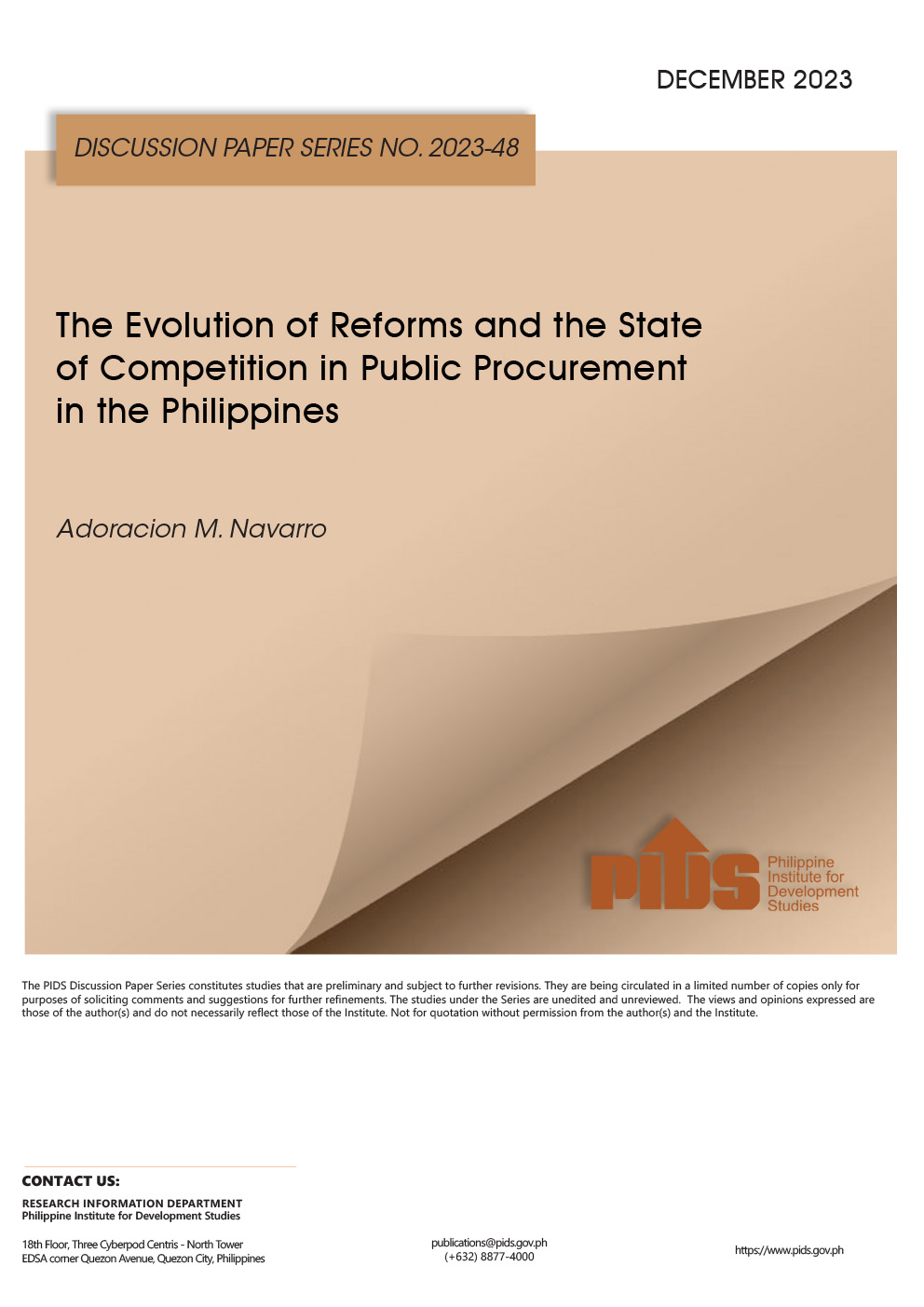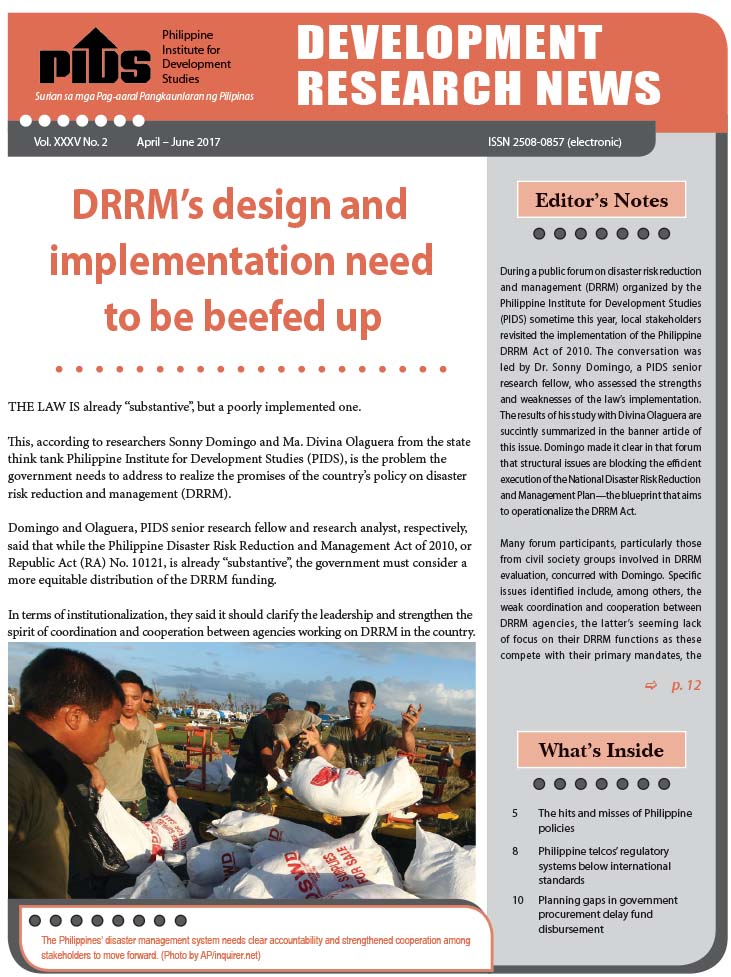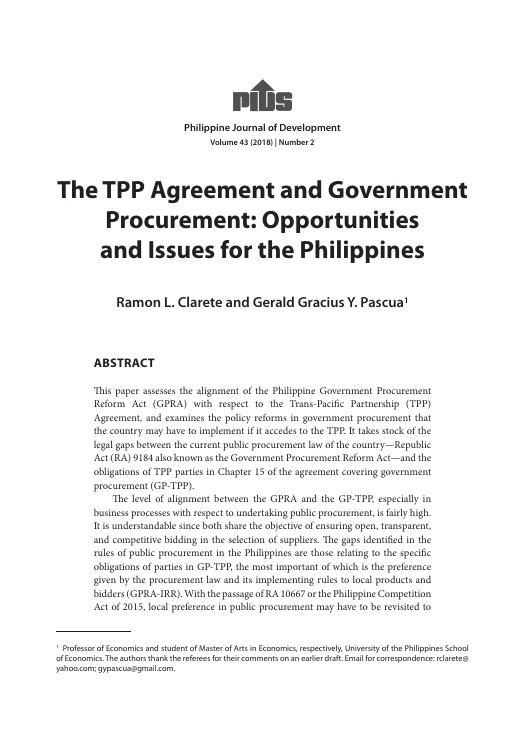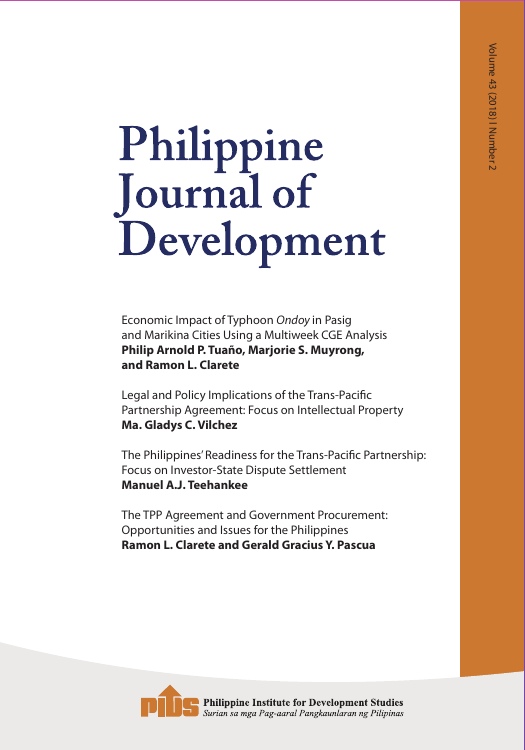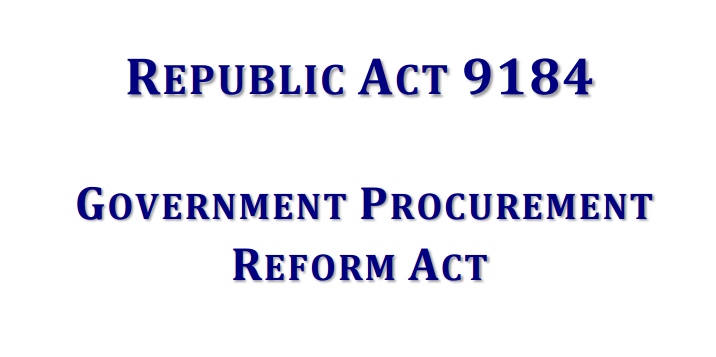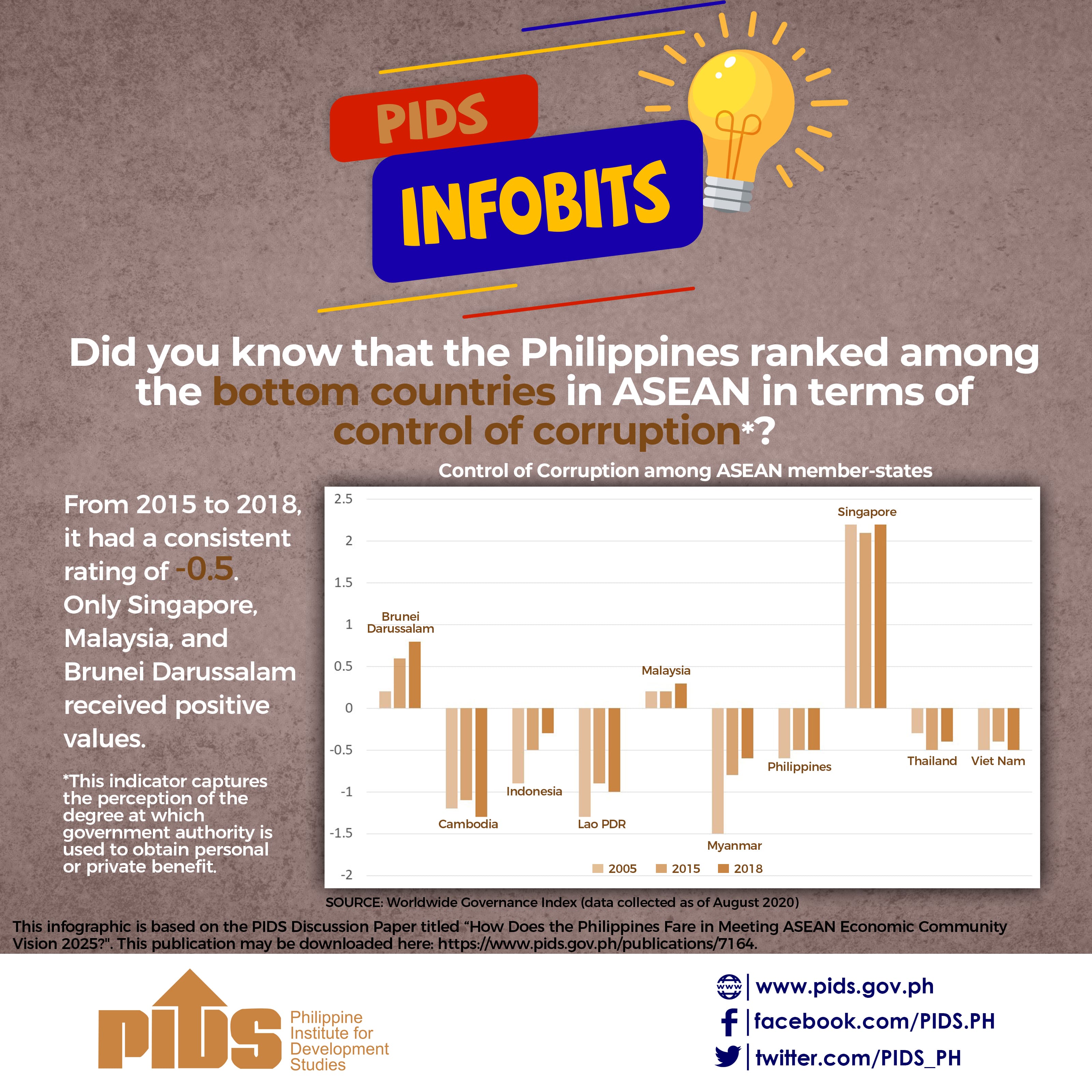In the literature on Philippine public procurement, knowledge gaps exist in terms of coverage of the period of reform implementation and the scope of reform application. This study helps close these gaps by analyzing Philippine public procurement history up to the years of application of the 2016 implementing rules and regulations of the General Procurement Act and using data for the usual three procurement categories: civil works, consulting services, and goods procurement. It also suggests a logit model of procurement specifically for the Philippines, given the available data in the Philippine Government Electronic Procurement System (PhilGEPS). The study finds that persistent issues include delays in procurement, non-conformance with procedures, poor bid design and evaluation, weak capacity to implement procurement procedures, and corruption. It also describes new challenges, such as the use of digital payments and the promotion of innovations. Running the logit model using PhilGEPS data, the study finds a general tendency toward weaker competition despite the 2016 reforms. The study then offers recommendations to improve the PhilGEPS, minimize corruption, improve procurement capacity, and address emerging challenges. It also recommends future areas of research, namely, procurement policies outside the GPRA, bid rigging, red flags of corruption, and procurement of scientific, scholarly, or artistic work.
Comments to this paper are welcome within 60 days from the date of posting. Email publications@pids.gov.ph.

